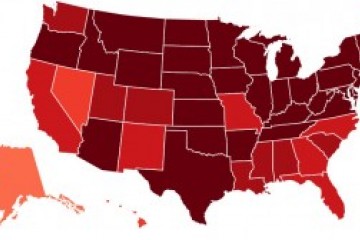Did the recession make people feel sick? Apparently so, according to data collected by researches from five institutions, including Johns Hopkins.

Image caption: Mark Dredze
By sifting through Google searches that were conducted during the recent economic downturn, researchers uncovered an apparent link between health and wealth.
Mark Dredze, an assistant research professor in the university's Department of Computer Science, co-authored the study, which is published in the February 2014 edition of the American Journal of Preventive Medicine.
By analyzing Google query patterns, Dredze and his colleagues discovered that during the so-called Great Recession (a period from December 2008 through 2011), Americans searched considerably more often for information about health ailments. By comparing the cumulative difference between observed and expected query volume for hundreds of individual terms, the team found there were more than 200 million excess queries during the Great Recession.
The specific queries with the greatest relative excess were "stomach ulcer symptoms" and "headache symptoms."
John W. Ayers of San Diego State University and Benjamin Althouse of the Santa Fe Institute led the research project.
From San Diego State's NewsCenter:
Aggregating the symptoms into themes, the researchers found that several broad categories of health concerns stuck out: Queries about headaches were 41 percent higher than expected; for hernias, 37 percent; for chest pain, 35 percent; and for heart arrhythmias, 32 percent. Back pain, gastric pain, joint pain and toothache also popped up with greater-than-expected frequency among the search terms.
"The Great Recession undoubtedly got inside the body via the mind," Ayers said. "Job loss or losing a home touched nearly everyone, directly or indirectly. But those who got away unscathed were probably not immune to the Great Recession's health implications, with many thinking 'I could be next'."
Posted in Health, Science+Technology
Tagged economy, computer science








